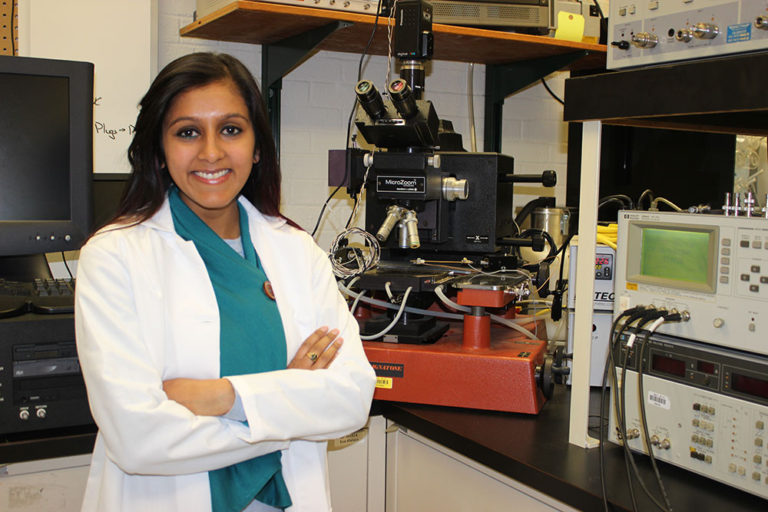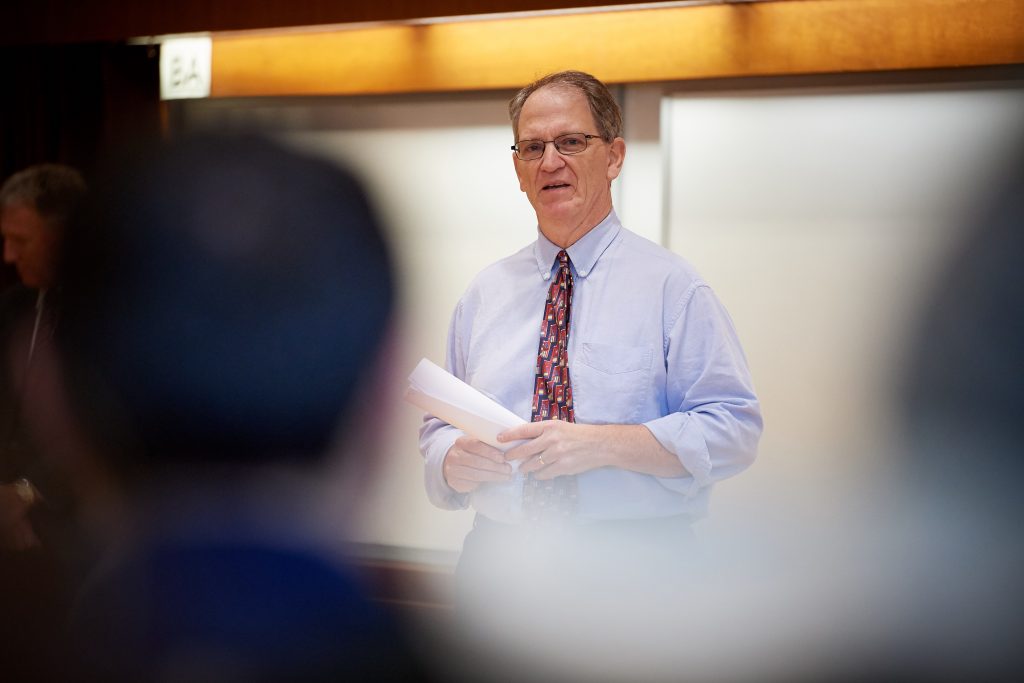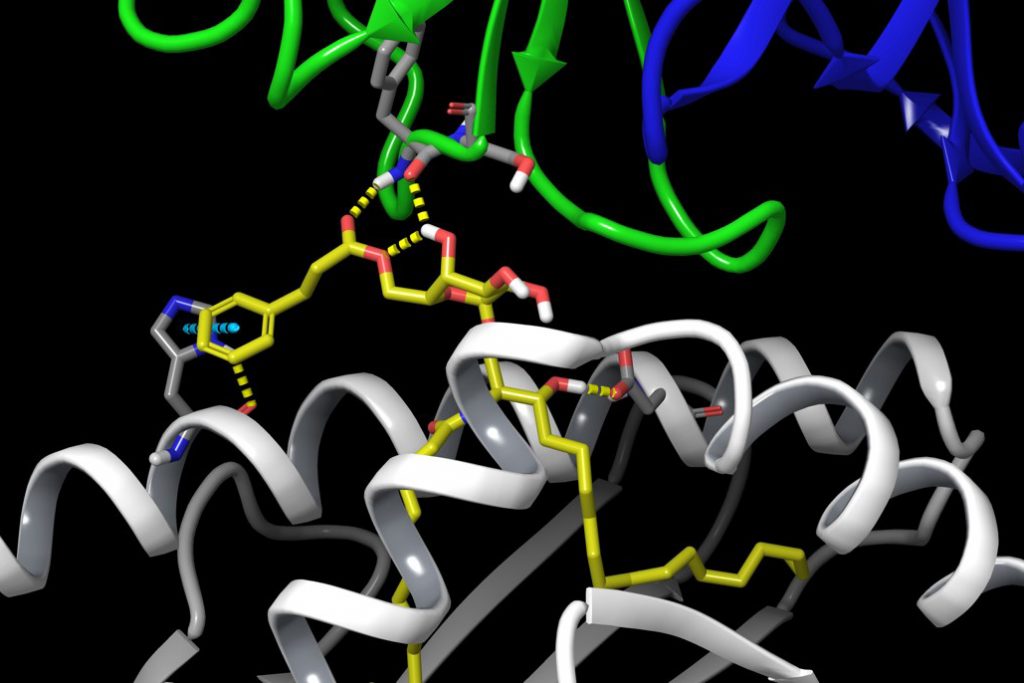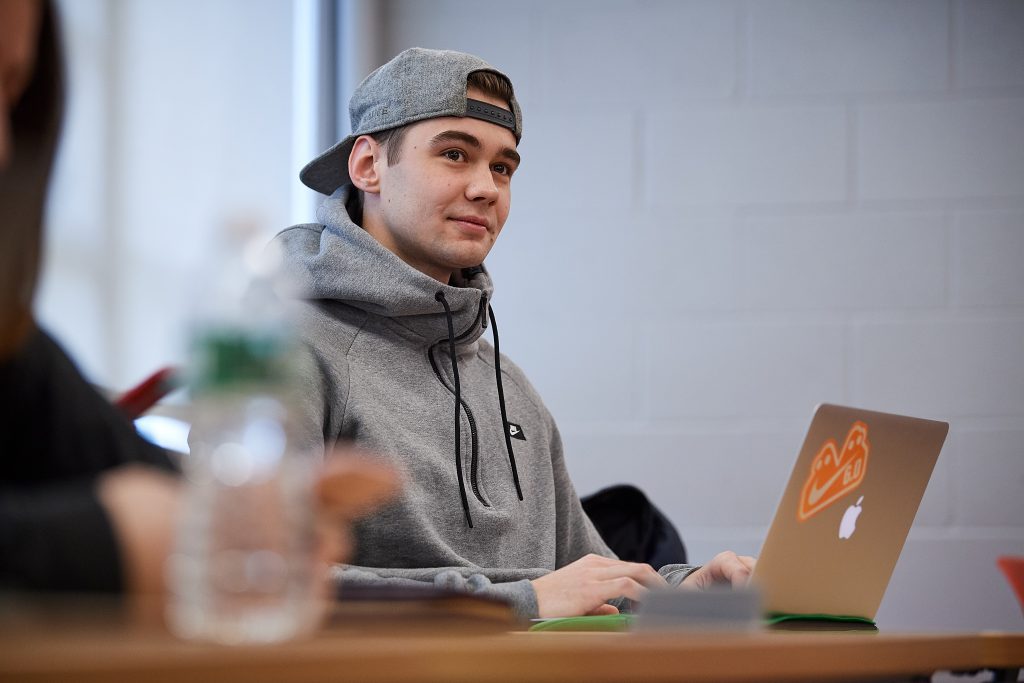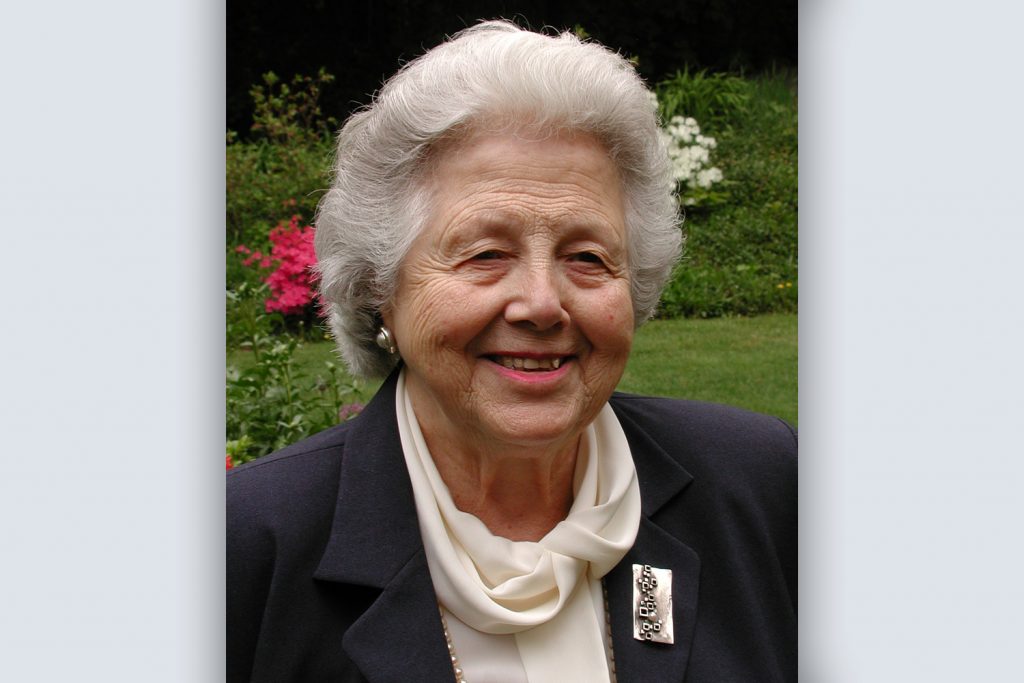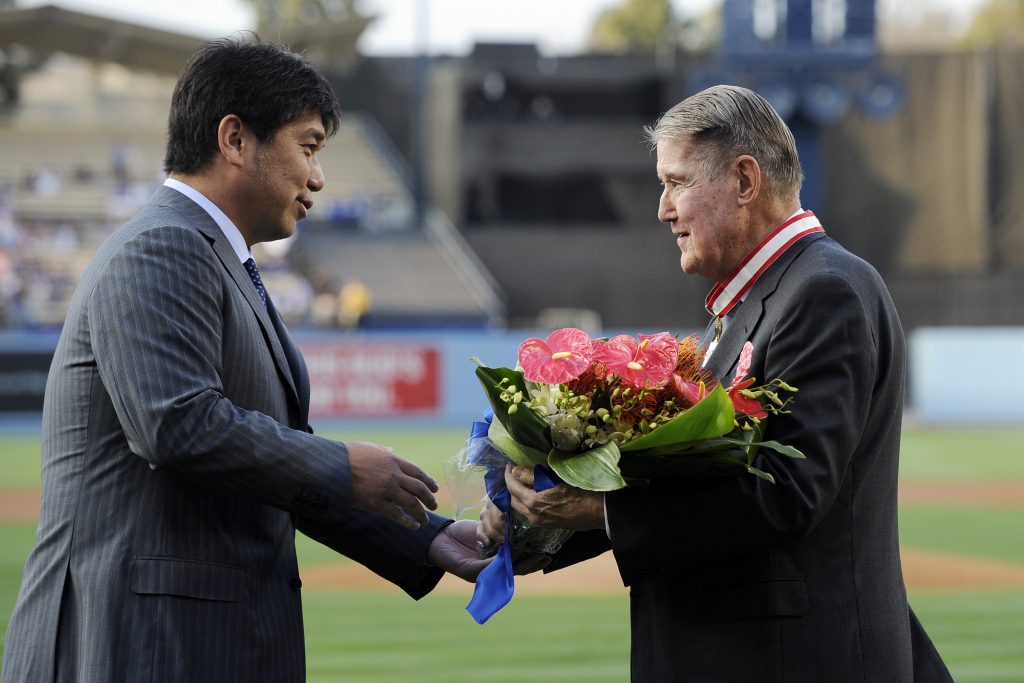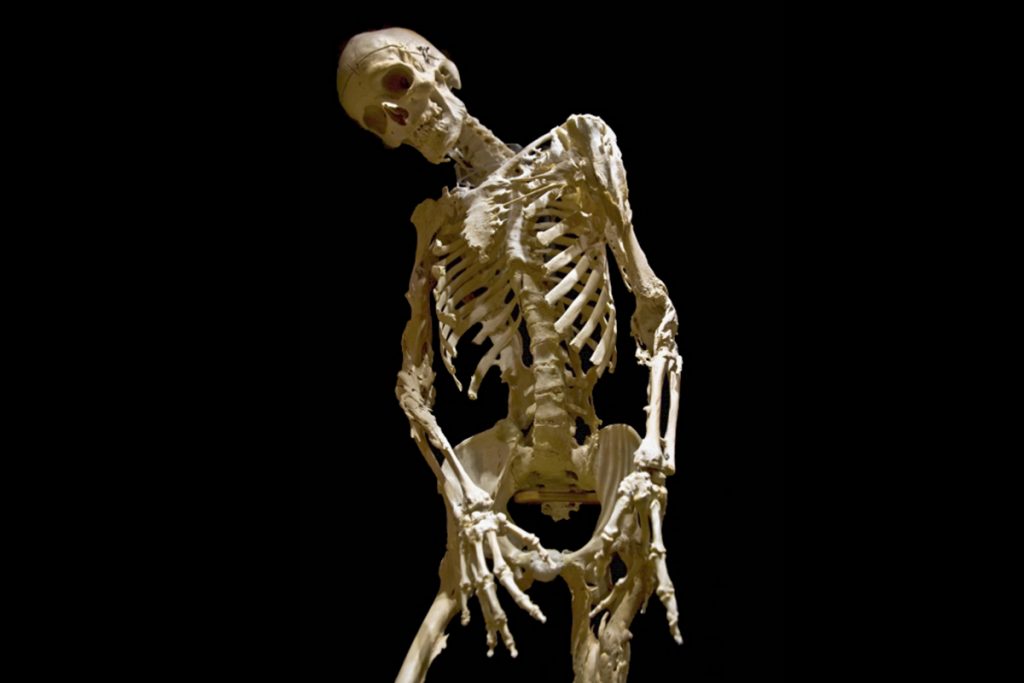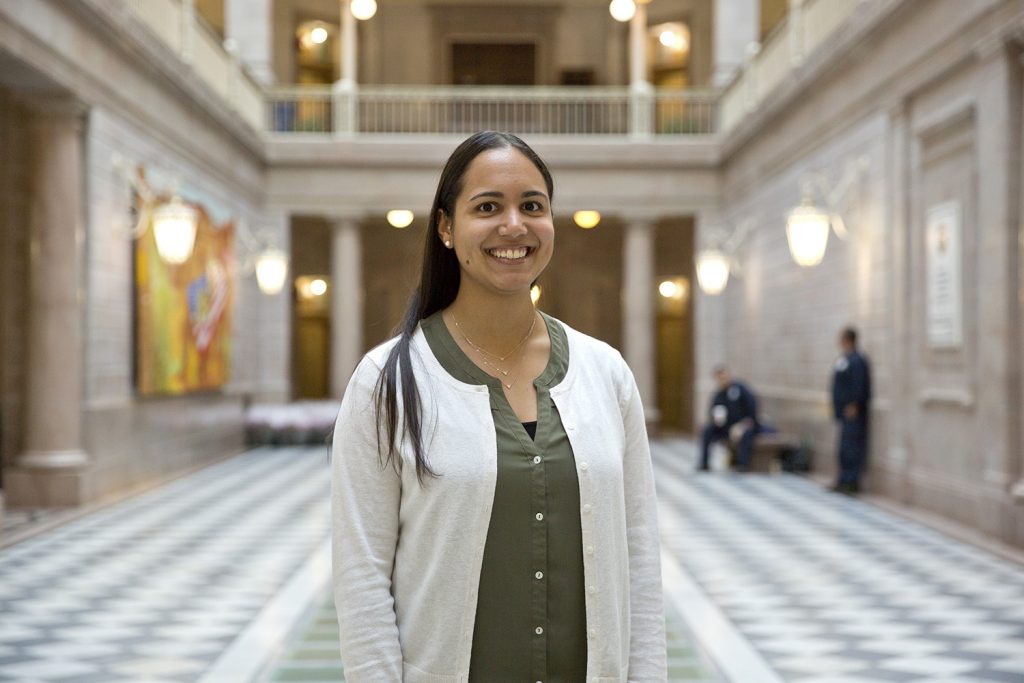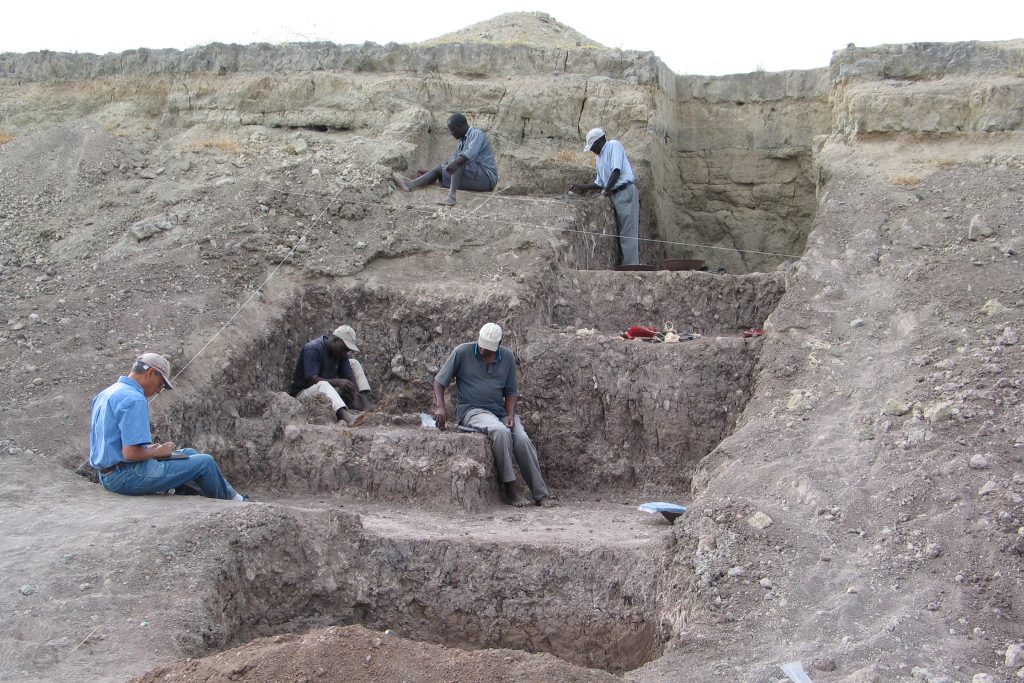College of Liberal Arts and Sciences
UConn Trio Participates in Science Policy Workshop
Graduate students Tanisha Williams, Manuel Rivas and Tulsi Patel participated in the three-and-a-half day program in Washington, D.C., last month.
April 2, 2018 | Kristen Cole
The Art of Muckraking
Mike Stanton, a Pulitzer Prize winner and a key player in the hit podcast 'Crimetown,' teaches tried-and-true 'shoe leather' investigative journalism. He hopes students will turn his old-school skill set into new-medium magic.
April 2, 2018 | Loretta Waldman
New Compound Helps Activate Cancer-Fighting T Cells
UConn researchers have identified mechanisms responsible for improved immune system activity, offering new approaches for more effective cancer treatments and vaccines.
April 2, 2018 | Colin Poitras
Student-Athlete Strong: Maxim Letunov
'There is so much more to being an athlete in college than people think,' says the ice hockey player.
March 29, 2018 | Susan Twiss
In Memoriam: Professor of Italian History Emiliana Noether
Emiliana Pasca Noether, a faculty member of the Department of History from 1968 until her retirement in 1987, died on March 24, 2018 at the age of 101.
March 28, 2018 | Combined Reports
The Tragic Story of America’s Only Native Parrot
In a world that faces extinction on a scale not seen in the past 65 million years, some may wonder: Aren’t there more important things to study? Read what UConn postdoc Kevin Burgio says about why the Carolina parakeet matters.
March 28, 2018 | Kevin Burgio '10 (CLAS), Department of Ecology & Evolutionary Biology
Babe Ruth in a Kimono: How Baseball Diplomacy has Fortified Japan-US Relations
The sport has been a unifier, bringing together the people of two nations with vastly divergent histories and cultures. Opening Day is Thursday – play ball!
March 27, 2018 | Steven Wisensale, Department of Public Policy
Bones in All the Wrong Places
UConn researchers have shown how a mutation causes certain cells in muscle tissue to develop into cartilage and bone at injury sites.
March 27, 2018 | Kim Krieger
UConn Public Policy Interns Serve Connecticut
Forty students from the Department of Public Policy are currently interning in public agency and nonprofit offices across Connecticut, including Hartford City Hall and the Department of Children and Families.
March 26, 2018 | Christine Buckley
Scientists Discover Evidence of Early Human Innovation, Pushing Back Evolutionary Timeline
A UConn anthropologist was part of a team that discovered evidence of relatively sophisticated human activities dated tens of thousands of years earlier than previous evidence in eastern Africa.
March 15, 2018 | Combined Reports
